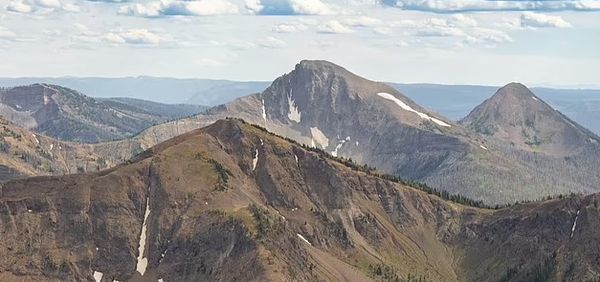
Yellowstone National Park has long been a popular destination for nature lovers and history enthusiasts. However, in recent years, a mountain within the park has come under scrutiny due to its controversial namesake. Mount Doane, named after a United States Army officer responsible for the massacre of hundreds of innocent Native Americans in 1870, has now been renamed First Peoples Mountain to better respect the area’s indigenous heritage.
The decision to change the name was made by the U.S. Board on Geographic Names, following a unanimous agreement. This mountain, standing tall at 10,551 feet, previously honored a man involved in a devastating attack on the Piegan Blackfeet tribe in northern Montana. The incident occurred in 1870, shortly after the Civil War, inflicting immense suffering on Indigenous communities.

For years, Native American tribes have voiced their concerns over the commemoration of individuals linked to genocide. The Great Plains Tribal Chairman’s Association, representing sixteen Sioux tribes, including Nebraska and the Dakotas, initially called for a name change in 2018. They sought a name that did not glorify the violence inflicted upon their ancestors, especially in instances where women, children, and elders were mercilessly killed.

The renaming of the mountain as First Peoples Mountain is a significant milestone and a testament to the perseverance of tribal communities. Chief Stan Grier of the Piikani Nation expressed gratitude, stating, “This name change is long overdue. We all agreed on ‘First Peoples’ Mountain’ as an appropriate name to honor the victims of such inhumane acts of genocide and to also remind people of the 10,000-year-plus connection tribal peoples have to this sacred place now called Yellowstone.”
By adopting the new name, Yellowstone National Park acknowledges the profound history of the land and pays tribute to those who inhabited the area for centuries. First Peoples Mountain serves as a poignant reminder of the atrocities committed against Native Americans and the resilience of tribal communities. It is crucial to remember the dark chapters of our past so that we can learn, grow, and foster a more inclusive and compassionate society.

What are your thoughts on the name change? Do you believe it was necessary given the historical context? Let us know your perspective.





